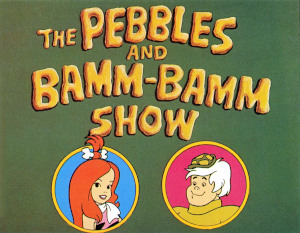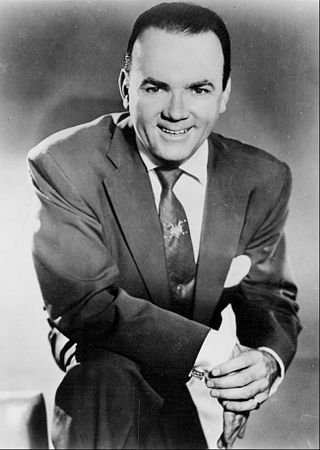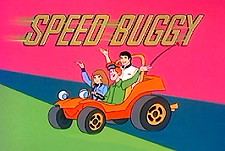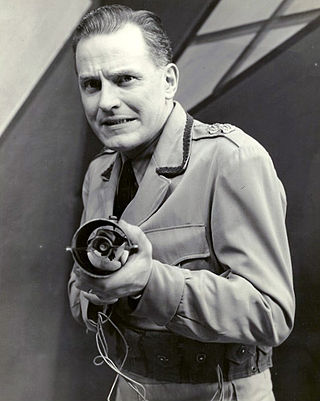Related Research Articles

Children's television series are television programs designed specifically for children. They are typically characterised by easy-going content devoid of sensitive or adult-facing themes and are normally scheduled for broadcast during the morning and afternoon when children are awake, immediately before and after school schedules generally start country-by-country. Educational themes are also prevalent, as well as the transmission of cautionary tales and narratives which teach problem-solving methods in some fashion or another, such as social disputes.
The year 1947 in television involved some significant events. Below is a list of television-related events during 1947.
"Saturday-morning cartoon" is a colloquial term for the original animated series and live-action programming that was typically scheduled on Saturday and Sunday mornings in the United States on the "Big Three" television networks. The genre's popularity had a broad peak from the mid-1960s through the mid-2000s; over time it declined, in the face of changing cultural norms, increased competition from formats available at all times, and heavier regulations. In the last two decades of the genre's existence, Saturday-morning and Sunday-morning cartoons were primarily created and aired to meet regulations on children's television programming in the United States, or E/I. Minor television networks, in addition to the non-commercial PBS in some markets, continue to air animated programming on Saturday and Sunday while partially meeting those mandates.

The Pebbles and Bamm-Bamm Show is an American animated television series produced by Hanna-Barbera Productions that originally aired for one season on CBS Saturday morning from September 11, 1971, to January 1, 1972. With an ensemble voice cast of Sally Struthers, Jay North, Mitzi McCall, Gay Hartwig, Carl Esser and Lennie Weinrib, the show follows teenage Pebbles Flintstone and Bamm-Bamm Rubble as they encounter problems growing up in the fictional town of Bedrock. The Pebbles and Bamm-Bamm Show is the first spin-off series of The Flintstones. For the 1972–73 season, the show was revamped as The Flintstone Comedy Hour, with more time given to the original Flintstones cast alongside both reruns and newly produced segments of Pebbles and Bamm-Bamm.
Mary Kay and Johnny is an American situation comedy starring real-life married couple Mary Kay and Johnny Stearns. It was the first sitcom broadcast on a television network in the United States. Mary Kay and Johnny initially aired live on the DuMont Television Network before moving to CBS and then NBC.

John Leonard Olson was an American radio personality and television announcer. Olson is perhaps best known for his work as an announcer for game shows, particularly the work he did for Mark Goodson-Bill Todman Productions. Olson was the longtime announcer for the original To Tell the Truth and What's My Line?, and spent over a decade as the announcer for both Match Game and The Price Is Right, working on the latter series at the time of his death.

Jeannie is an American animated television series that originally aired for a 16-episode season on CBS from September 8 to December 22, 1973. It was produced by Hanna-Barbera in association with Screen Gems, and its founders William Hanna and Joseph Barbera are the executive producers. Despite being a spin-off of sorts of the television sitcom I Dream of Jeannie, Jeannie has little in common with its parent show. In this version, the title character is rescued on the beaches of southern California by a high school student, Corey Anders. Jeannie is accompanied by genie-in-training Babu, and they become companions to Corey and his best friend, Henry Glopp, both of whom also help Jeannie and Babu adjust to their new home as well as life in Los Angeles. The series was marketed towards a younger demographic than I Dream of Jeannie.

Speed Buggy is an American animated television series, produced by Hanna-Barbera, which originally aired for one season on CBS from September 8, 1973, to December 22, 1973. With the voices of Mel Blanc, Michael Bell, Arlene Golonka, and Phil Luther Jr., the show follows an orange anthropomorphic dune buggy who alongside teenagers Debbie, Mark, and Tinker, solves mysteries while participating in racing competitions around the world. The series was produced by Iwao Takamoto, executive produced by William Hanna and Joseph Barbera, and directed by Charles A. Nichols.

Albert E. Hodge was an American actor best known for playing space adventurer Captain Video on the DuMont Television Network from December 15, 1950, to April 1, 1955. He played the Green Hornet on radio from January 1936 until January 1943.
A weekday cartoon is the colloquial term for the animated series programming that was typically scheduled on weekday mornings and afternoons in the United States on many major television networks and in broadcast syndication since the 1960s.

Clair Robert "Bob" Emery, known professionally as Big Brother Bob Emery, was a radio and television pioneer and children's show host. He is best known for his pioneer late-1940s network television show, Small Fry Club, and for his long career as a local broadcaster in Boston before and after that.
The Magic Cottage was an American children's program broadcast on the now-defunct DuMont Television Network from 1949 to 1952.
Boxing from St. Nicholas Arena was an American sports program originally broadcast on NBC from 1946 to 1948, and later on the now-defunct DuMont Television Network from 1954 to 1956.
Talk shows are highlighted in yellow, local programming is white, reruns of prime-time programming are orange, game shows are pink, soap operas are chartreuse, news programs are gold and all others are light blue. New series are highlighted in bold.
Play the Game, also known as Let's Play the Game, was one of the earliest game shows to be broadcast over an American television network, and the first known example of a television panel show. In 1941-42, CBS aired an early game show, CBS Television Quiz.
Doorway to Fame is an American talent show broadcast on the now defunct DuMont Television Network. The series ran from May 2, 1947, to July 11, 1949.
King Cole's Birthday Party was an early American children's television series which aired on the DuMont Television Network. The program was broadcast from May 15, 1947, to June 23, 1949.
Charade Quiz was an American game show hosted by Bill Slater which aired on the DuMont Television Network Thursdays at 8:30 p.m. ET from November 27, 1947, to June 23, 1949.
In American television terminology, a fourth network is a reference to a fourth commercial broadcast (over-the-air) television network, as opposed to the Big Three television networks that dominated U.S. television from the 1950s to the 1980s: ABC, CBS and NBC.
References
- ↑ Terrace, Vincent (2011). Encyclopedia of Television Shows, 1925 through 2010 (2nd ed.). Jefferson, N.C.: McFarland & Company, Inc., Publishers. p. 982. ISBN 978-0-7864-6477-7.
- 1 2 3 4 5 6 7 8 Holz, Jo (2017). Kids' TV Grows Up. McFarland. pp. 20–22. ISBN 9781476630601 . Retrieved 3 September 2017.
- ↑ McNeil, Alex (1996). Total Television (4th ed.). New York, New York: Penguin Books USA, Inc. p. 765. ISBN 0-14-02-4916-8.
- ↑ "DuMont Sets Teenage 'Rainbow House' Airer". Variety. January 14, 1948. p. 42. Retrieved 5 September 2017.
- ↑ Robertson, Patrick (2011). Robertson's Book of Firsts: Who Did What for the First Time. Bloomsbury Publishing USA. ISBN 9781608197385 . Retrieved 4 September 2017.
- 1 2 3 Von Schilling, Jim (2013). The Magic Window: American Television ,1939-1953. Routledge. p. 97. ISBN 9781136398605 . Retrieved 3 September 2017.
- 1 2 Fischer, Stuart (2014). Kids' TV: The First Twenty-Five Years. Open Road Media. ISBN 9781497633902 . Retrieved 4 September 2017.
- ↑ "Video Business, July 7-13, 1947" (PDF). Broadcasting. September 1, 1947. p. 18. Retrieved 4 September 2017.